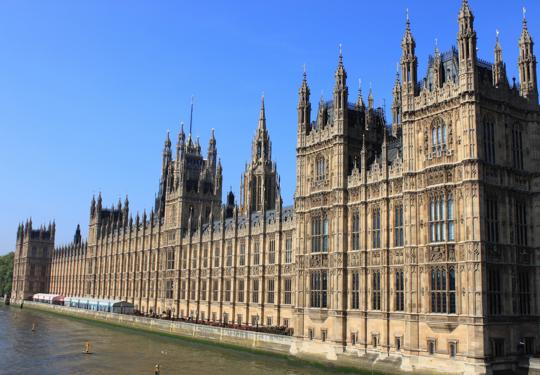The government must take action to address growing health inequalities if it is to achieve its ambition to raise the healthiest generation of children in history and support people back into work, the Inequalities in Health Alliance (IHA) has said in an open letter to the public health and prevention minister.
The IHA, which is led by the Royal College of Physicians (RCP) and represents 257 members, has called for a cross-government strategy to reduce health inequalities since 2020 – one that tackles the root causes of ill health such poor housing, employment and food quality.
The IHA welcomed the government’s pre-election commitment to establish a mission delivery board for health and its ‘significant potential to drive’ action across all government departments.
The open letter to public health and prevention minister Andrew Gwynne MP says government must now set out its plans for this board, and that all wider causes of ill health – such as poor housing, the commercial impacts such as marketing of alcohol and the availability of tobacco, the ability to make healthy food choices and air quality – must be covered if the government is to achieve its ambitions to halve the gap in healthy life expectancy and reduce demand on the NHS.
In March, polling conducted by the RCP found that 55% of consultant physicians had seen more patients with ill health over the last three months due to social and economic factors and almost a quarter (24%) said more than half or almost all of their workload is due to illnesses or conditions related to the social determinants of health.
There is currently a nearly 20-year-gap in healthy life expectancy between the most and least deprived areas in England, and decisive action must be taken to prevent it widening further.
Long-term sickness also kept more than 2.8 million people out of work between February and April this year – the highest since records began. The estimated cost of inequality to the UK economy was a staggering £106.2 billion 2022.
In the letter to the minister, the Inequalities in Health Alliance, said:
“Reducing the avoidable differences in health across the population must be a priority.
“The health MDB has significant potential to drive coordinated and comprehensive action across all government departments to tackle the root causes of illness, such as poor housing, lack of educational opportunity, employment (including how much money someone has), the commercial determinants of health, racism and discrimination, food quality and ability to make healthy choices, transport and air quality. These factors all need to be a focus of the health MDB for real improvements to be made to health inequality, healthy life expectancy and to deliver the government’s ambition to raise the healthiest generation of children in history.
“IHA members are keen to work with you and ministers across government to support the health MDB to develop a holistic cross-government strategy to reduce health inequality, tackle the wider determinants of health”
“We hope that the government will shortly set out more detail on the MDB’s scope and structure.
‘Reducing health inequalities is vital in delivering widespread economic growth, which we know is central to your government’s agenda.”
Dr Mumtaz Patel, who is acting as RCP president and is the RCP’s vice president for education and training, said:
“Everything from the food we eat to the air we breathe impacts our health. At a time when the NHS is under unprecedented pressure, it is crucial that we address the underlying issues impacting the nation’s health.
“Health inequalities are not just a health issue; they are a matter of social justice and economic necessity. A comprehensive cross-government strategy to reduce health inequalities can help everyone, regardless of their background, to have the opportunity to lead healthy and productive lives.”
Read the IHA letter to public health and prevention minister Andrew Gwynne MP: [LINK]
Inequalities in Health Alliance
The Royal College of Physicians convenes the Inequalities in Health Alliance – a coalition of more than 250 organisations calling for a cross government strategy to reduce health inequalities.
For a full list of IHA members, please see the Royal College of Physicians website.
Healthy Life Expectancy
Healthy Life Expectancy (HLE) is the average number of years that a person can expect to live in good health. There is significant variation across the country.
The latest data from the Office for Health Improvement and Disparities revealed:
-
Blackpool has the lowest healthy life expectancy of anywhere in the country, at just 53.9 years. This has worsened over the last decade, from 54.1 years in 2009.
-
Wokingham has the highest healthy life expectancy of anywhere in the country, at 71.05 years. This has worsened over the last decade, from 71.1 years in 2009.
-
Within London, Barking and Dagenham has the lowest healthy life expectancy at just 59.1 years, while Kingston upon Thames has the highest health life expectancy at 69.6.
-
There is over a 10-year gap in health life expectancy between the most and the least deprived areas of London.
-
There is a 17.6-year gap in healthy life expectancy between the most and least deprived of England.
-
The largest gap in HLE between men and women exists in Rutland, where men are expected to live 7.9 years longer than women. The reverse is true of Greenwich where women are expected to outlive men by 7.1 years. Only three areas of the country have an equal HLE for men and women - Bath and North East Somerset, Hertfordshire and Cheshire East.
Health mission board
The Labour health mission, published in 2023, said:
“We will establish a mission delivery board at the heart of Government to bring together all departments with an influence over the social determinants of health”.
Child Health Action Plan
The Child Health Action Plan, published in January 2024 said:
“We need a bold new ambition: for this to be the healthiest generation of children ever.”





